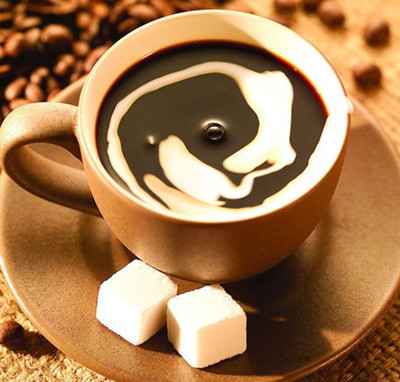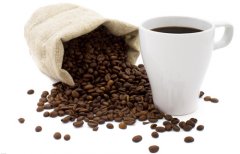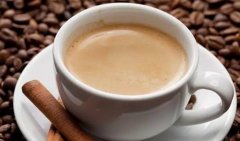A perfect espresso espresso-Novell coffee how to make espresso? Mouth

Espresso, or espresso, is a type of coffee that is brewed with extremely hot, but not boiling, water by high pressure over ground coffee powder. "Espresso" is Italian for "accelerated speed." Italian coffee is known as the root of good coffee. Although the Italian coffee reputation belongs to Italy, and the first Italian coffee machine is in France to start a simple experiment, but as we know today, it is the Italians developed it.
Espresso is a technological method of brewing coffee, defined in the book Espresso Coffee The Chemistry of Quality, which must meet the following conditions:
Amount of coffee powder (1 cup) 6.5±1.58 g
Temperature of water (℃) 90°±5°
Water pressure 9±2 Atmospheric pressure (bar)
Filtration time 30±5 seconds
■ Water temperature: If the water temperature is too low, it will cause insufficient extraction, and the substances inside the coffee cannot be fully released, so that only a cup of Espresso with insufficient flavor and sour taste can be brewed; once the water temperature is too high, excessive extraction will make coffee bitter and astringent.
■ Water pressure: The general hot water brewing method can only extract water-soluble substances inside coffee, while Espresso can further extract water-soluble substances by high pressure. These high pressures will completely emulsify the lipid Substances inside the coffee and dissolve them in the water, which is the main source of the "body".
【P.S.】Emulsification will make the taste of Espresso more viscous, so that people drink up a "velvety soft" feeling; and viscosity will form a lower surface tension, more can invade the taste buds, so that the fragrance reverberates in the mouth, a long time does not disperse.
■ Filtration time: The length of filtration time will affect the amount of water, Espresso to extract the flavor of coffee with high pressure hot water, about 25 seconds to complete the task (after this period of time, the outflow of liquid has no taste, only diluted Espresso). Some people continue to let it run out of water after a timeout, filling a cup to form an Americano or Lungo, which tastes like charcoal coffee.
Important Notice :
前街咖啡 FrontStreet Coffee has moved to new addredd:
FrontStreet Coffee Address: 315,Donghua East Road,GuangZhou
Tel:020 38364473
- Prev

Why is cold coffee better? How's cold coffee? Can coffee be brewed cold?
The silky texture, the sweet taste, the rich floral aroma This must be cold brewed coffee! Every coffee lover knows the difference between cold brewed coffee and traditional hot brewed coffee. Everyone is fascinated by the unique taste of cold brewed coffee. Hot or cold, coffee is made from the same ingredients: coffee powder and water. But why cold brewed coffee tastes and traditions
- Next

Is instant coffee good or bad? How about instant coffee? The benefits of instant coffee drink instant coffee
Coffee is one of the main drinks of human beings, and it is an indispensable thing for many people every day. Chinese people have always given priority to drinking tea. in recent years, coffee has entered Chinese society in a fashionable manner, and the number of people who drink coffee has gradually increased. Drinking coffee overseas, as it has become an important part of social life, the conditions for making coffee are available everywhere. People drink freshly brewed coffee and seldom drink instant coffee.
Related
- Beginners will see the "Coffee pull flower" guide!
- What is the difference between ice blog purified milk and ordinary milk coffee?
- Why is the Philippines the largest producer of crops in Liberia?
- For coffee extraction, should the fine powder be retained?
- How does extracted espresso fill pressed powder? How much strength does it take to press the powder?
- How to make jasmine cold extract coffee? Is the jasmine + latte good?
- Will this little toy really make the coffee taste better? How does Lily Drip affect coffee extraction?
- Will the action of slapping the filter cup also affect coffee extraction?
- What's the difference between powder-to-water ratio and powder-to-liquid ratio?
- What is the Ethiopian local species? What does it have to do with Heirloom native species?

